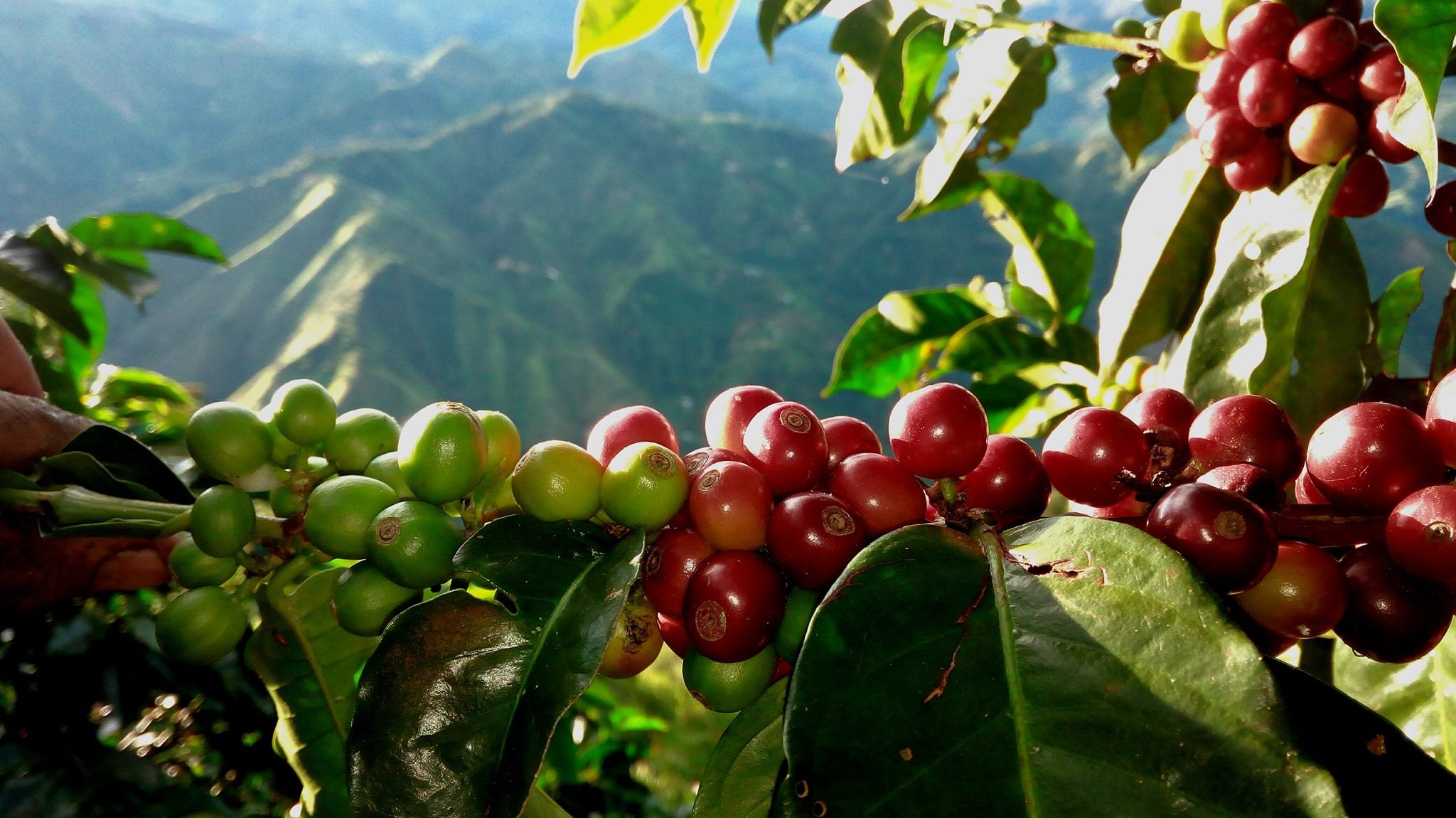With a coffee industry under constant pressure - mainly due to volatile international prices - coffee growers worldwide earning a fair income are more likely to be the exemption than the rule. As acknowledged in the Circular Agriculture vision issued in 2018 by the Dutch Ministry of Agriculture, Nature and Food Quality, producers should have a dignified income which will in turn make business attractive for the next generations. For this reason, LAN Bogota supports the Futureproof Coffee Collective launched by MVO Nederland in collaboration with Solidaridad Network. This initiative is a collaborative venture by various coffee companies aimed at establishing the real price for coffee.
Agricultural producers, in the centre of the circle
Colombia ranks among the top five global exporters of products such as Coffee, Flowers, Bananas and Palm Oil. High volumes of these products are certified with sustainable trade standards and are shipped to the Netherlands, one of Colombia’s most important partners for agricultural trade. In 2018, The Netherlands Prime Minister Mark Rutte, in the company of the Minister of Agriculture, Nature and Food Quality, Carola Schouten, visited Colombia. Shortly before the State visit, the Dutch government had launched the vision on Circular Agriculture which recognises that agricultural producers are hard-working entrepreneurs and as such deserve a solid and stable position (and income) in the supply chain.
As a follow up of the State visit, LAN Bogota developed a bilateral strategy on circular agriculture wherein food producers are more valued and, therefore, should be provided a sound economic base. Notwithstanding, the required structural transformation to realise this, will not only come from agricultural producers themselves. Governments and consumers also have a role to play in this and it is important that every stakeholder in the value chain is aware that food production has a major impact on our living environment.
Beeld: © Andrés Perdomo Centeno
Café de Colombia
Throughout the years, Colombia has built a global reputation for its high quality coffee and its picturesque coffee landscapes. Coffee production, however, implies both internal and external costs along the value chain, which usually are not monetised or calculated when establishing the sale price, such as its impact on the environment. In consequence, traders and consumers end up paying only the minimal price, not the actual price; and coffee roasters have to contend with thin margins, high costs and fierce competition.
Whereas the majority of consumers still choose low price and high convenience, increasing environmental awareness leads to higher requirements and more sophisticated preferences. This apparent contradiction (between low prices and higher standards) exerts a negative pressure on producers by hindering access to markets (with increasing requirements) in a sector with low economic rewards. As a result, the low prices that coffee growers are paid, subsequently cause or make more difficult to move away from unsustainable production practices such as excessive use of water and/or agrochemicals, water pollution or deforestation, among others.
Improving this situation requires a shift in thinking and, to succeed in this, making more information available is key. To that end, MVO Nederland in collaboration with Solidaridad Network launched the “Futureproof Coffee Collective” a collaborative venture with more than 25 coffee companies aimed at establishing the real price for coffee.
Colombian coffee growers: valuable and connected
This initiative, co-financed by the Dutch government, embraces the principles of true pricing and true cost accounting as a driver for change in the Colombian coffee value chain. Although the ambition is to work towards a more complete set of indicators and more detailed level of calculation on individual indicators, for the first phase of development, the Futureproof Coffee Collective has chosen 5 indicators: living income gap, water use, biodiversity loss, soil erosion and carbon emission. This will contribute to establish a benchmark for the true cost of coffee production and compare differences between more organic and conventional ways of production.
Beeld: © Andrés Perdomo Centeno
With a joint measurement model, the hidden costs of coffee production (including the social and environmental costs) are monetised. Based on this information, interventions to reduce these hidden costs like measures to save water, stop erosion, lessen water pollution or use less fertilizers, are stimulated and supported. For instance, the adoption of water-efficient coffee mills, commonly referred to as “eco-pulpers”, is a sustainable solution to reduce the pressure onto local water resources, and are currently being implemented by “La Victoria” coffee growers association in the Huila department with the support of the Dutch company “The Coffee Quest”.
Promoting and facilitating a broad dialogue on the results achieved by these interventions is also another important task the Futureproof Coffee Collective does. By paying a true price, consumers come closer to farmers, shortening the supply chain and helping them moving away from non-sustainable production practices. This way, this initiative contributes to systemic transition and making the coffee value chain more transparent.
In the following video you can learn a more about Futureproof Coffee Collective’s mission and some of the partners involved in this project:

Author: Andrés Santana
